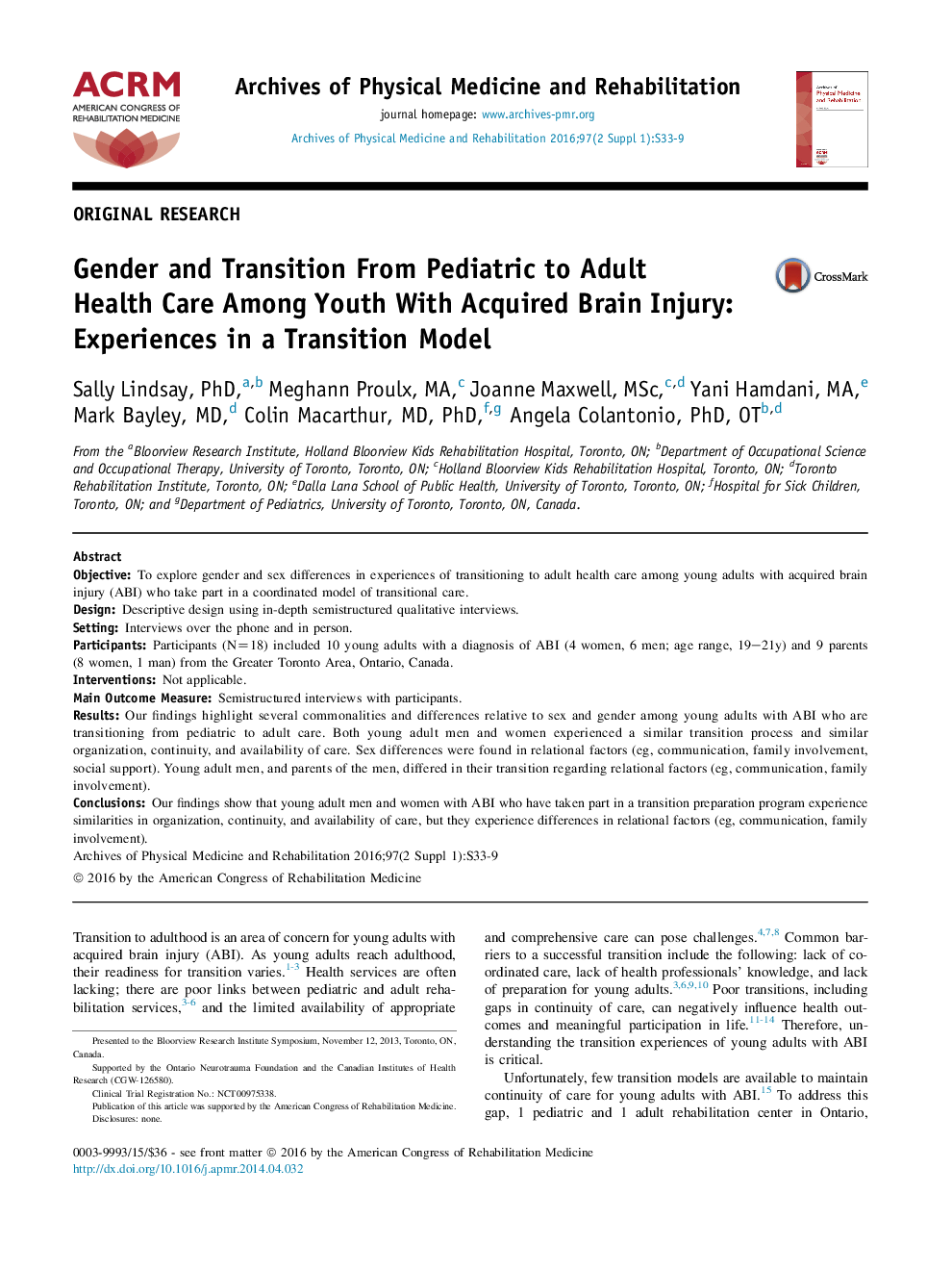| Article ID | Journal | Published Year | Pages | File Type |
|---|---|---|---|---|
| 3447948 | Archives of Physical Medicine and Rehabilitation | 2016 | 7 Pages |
ObjectiveTo explore gender and sex differences in experiences of transitioning to adult health care among young adults with acquired brain injury (ABI) who take part in a coordinated model of transitional care.DesignDescriptive design using in-depth semistructured qualitative interviews.SettingInterviews over the phone and in person.ParticipantsParticipants (N=18) included 10 young adults with a diagnosis of ABI (4 women, 6 men; age range, 19–21y) and 9 parents (8 women, 1 man) from the Greater Toronto Area, Ontario, Canada.InterventionsNot applicable.Main Outcome MeasureSemistructured interviews with participants.ResultsOur findings highlight several commonalities and differences relative to sex and gender among young adults with ABI who are transitioning from pediatric to adult care. Both young adult men and women experienced a similar transition process and similar organization, continuity, and availability of care. Sex differences were found in relational factors (eg, communication, family involvement, social support). Young adult men, and parents of the men, differed in their transition regarding relational factors (eg, communication, family involvement).ConclusionsOur findings show that young adult men and women with ABI who have taken part in a transition preparation program experience similarities in organization, continuity, and availability of care, but they experience differences in relational factors (eg, communication, family involvement).
